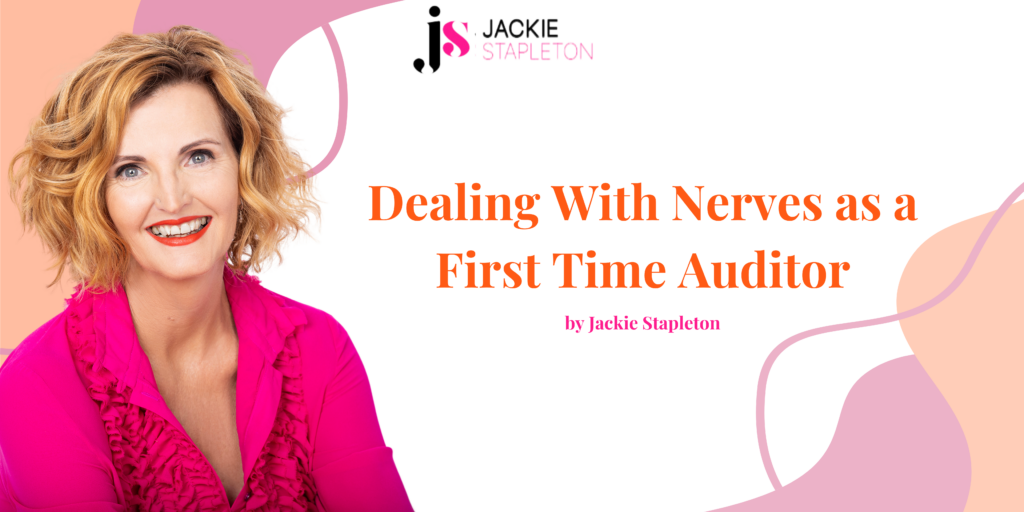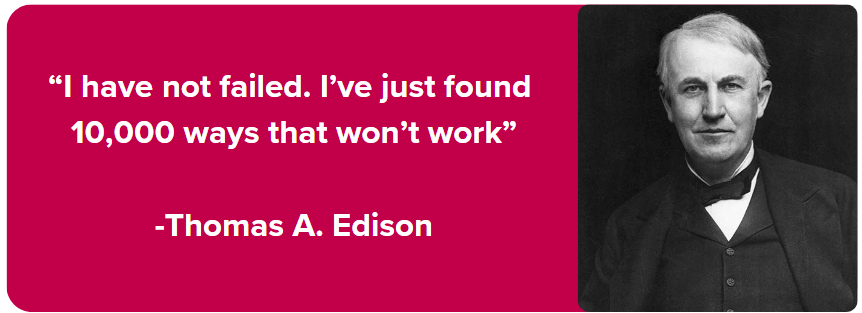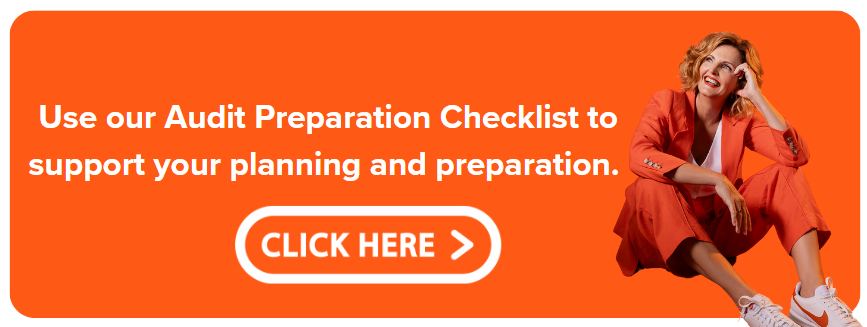June 3th, 2024

—————
We’ve all experienced it—our first time working with a client as an auditor or consultant.
Let me share something with you – we all go through this. It is normal. We are human. I know that people think that Auditors are robots, but we are not! So, it’s ok to show our human side too.
Have Fun and Be Curious
Asking questions is great fun! It’s like being a kid all over again. How do you do that? Why do you do that? Can you show me? It’s all about being curious and learning new things. You are just using guiding questions to take you back to the criteria you are auditing against. And this is all in YOUR head, nobody else’s.
In essence, auditing is about inquiry and verification, skills you likely use in everyday situations without even realizing it. So, if you’ve ever doubted whether you could be an auditor, you might find that you’re already applying the fundamentals of auditing in your daily life. Embracing these skills can be your first step toward an auditing career.

—————
Be Prepared
My biggest tip is to be prepared. Auditing isn’t just about turning up, asking questions and taking notes. There is some planning and preparation that needs to be done first.
This planning and preparation includes:
- Document review – review the previous audit report (if there is one) and become familiar with previous findings raised, whether they are nonconformances or observations. These need to be followed up and are great ‘ice-breakers’ after the opening meeting.
- Audit Plan and timetable – you will need to map out the plan for the audit. The timetable itself is a great checklist that I use. You should plan ahead what activities and processes you will be following and reviewing and in what order. By doing this it will help with the flow of your questions.
- Audit Checklist – this is simply some opening questions that you will use to start the conversation in the areas that you are auditing. These are inquisitive, curious questions to get the auditee talking. Then the child in us comes in and we keep following the trail by asking to see the evidence. I always love ‘doing’ a process with my auditees. So if an order has just been received, show me (and let’s do it together) the process that you follow now.
——————
The audit checklist is YOUR tool to use so you develop it how you work best. I personally tend to be a bit ‘free-range’ and add questions as I go, referring back to the timetable as a guide. Other auditors that I work with have strict electronic checklists that they work through on a tablet. That works for them so as long as the output is met than that is ok as well. Figure out what works best for you. You might find when you are first starting out that a good solid electronic checklist works best for you. It gives you something to follow through the audit.
Take a Breather
If you ever get to the point in an audit interview that you are uncertain of where to take the questioning, take a breather. That’s perfectly ok. I am very comfortable saying this to auditees. I will thank them for their time and then let them know that once I’ve gone through my notes, I may identify gaps and if that is the case I will be back. If I have everything covered our time together is done 😊
Then you do have the time to work through your notes, compare it against the criteria and give yourself some breathing space to prepare more questions if you find gaps.
Follow Up Questions
Remember as you are asking questions, not only do you use opening questions to get the auditee talking, and you also need to back them up with follow-up questions to collect the evidence. That is what the overall intent of the audit interview is. You need to SEE what they have done, whether it is demonstrated (observed) or backed up with completed documents, forms, communications etc. This is the ‘juicy’ stuff that you need to confirm conformance to the criteria. If you keep this in mind as an auditor, then it will help prompt your questions.
We Are Human
The big takeaway with this is like I mentioned earlier that we are human. We don’t have to be perfect. Yes, we have to be competent in what we are auditing or consulting in and ask great questions, but it’s okay to hit pause and take time to regroup. Look through your notes because you might find, when you pull yourself back and reflect on the conversation, you might find some other areas or questions that you need to ask to fill that gap.
——————
Organize Your Personal Life
I remember when I first started delivering classroom training as a contractor over 16 years ago, my youngest son was only 5 and had just started school. I mentioned to the contact at the training provider that I was dropping my son off on the way to meet with him. When I arrived, I was questioned about my ‘personal life’ and whether I was a single mum. They had just assumed that because I was dropping my son off, then that was the story. They then had concerns about my reliability (which is ridiculous) because my superpower is organization! So not only all of the points above for supporting you in being prepared for an audit are essential, organizing your personal life is also important. In the article How to Prepare for a new Job they share that to ease the mental strain, make a to-do list of tasks to facilitate your adjustment, like organizing childcare, transportation and meal preparation. Not worrying about foreseeable personal details will help you concentrate fully on your new role.
Your Next Steps
- Utilize the Audit Preparation Checklist: Leverage the Audit Preparation Checklist we provided to ensure you’ve covered all necessary bases for a smooth start.
- Set Short-Term Goals: Identify specific, achievable goals for the next month to guide your professional development.
- Schedule Regular Check-Ins with an Expert: Arrange frequent meetings with an Industry Expert to discuss progress, align on expectations, and adapt strategies as needed.
————-
—————-
Work with an ISO Career Expert: Elevate your career as an ISO leader.

View comments
+ Leave a comment